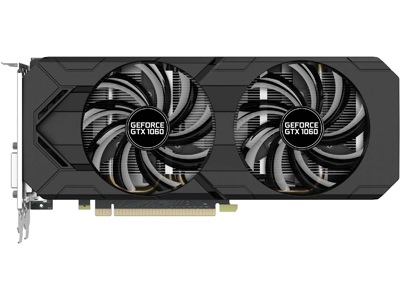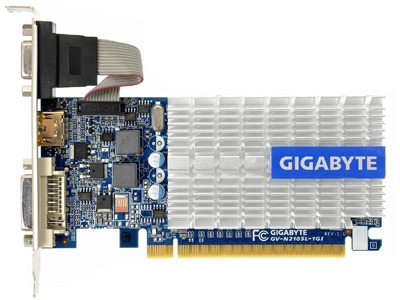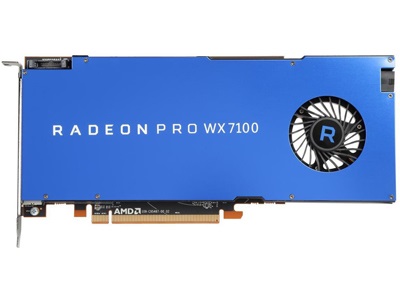

How to Choose a Graphics Card
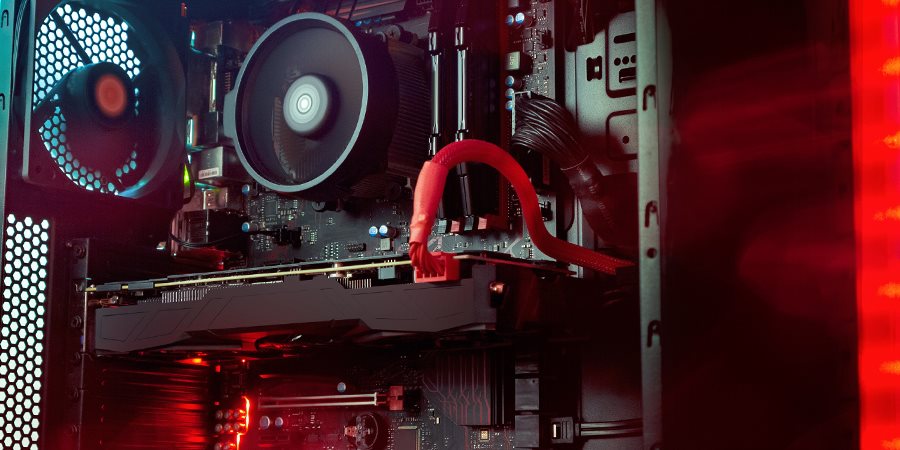
These days, graphics cards are a dime a dozen, and their manufacturers are just as prolific. Companies like MSI, ASUS, Sapphire, Gigabyte, and many more make up the largest share of the market. The vast majority of graphics cards use Nvidia and AMD graphics chips, but in choosing, you'll care a lot less about who produces the graphics card than what it is intended for and how powerful it is. In your selection, you'll need to pay attention to a number of factors, such as performance, operational properties, and compatibility. We're here to make a difficult choice a little easier.
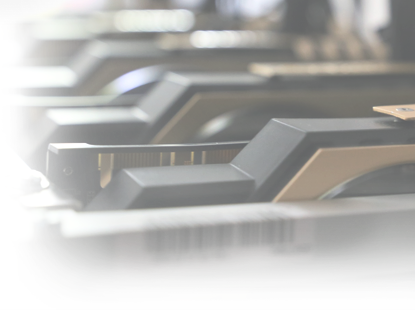
Contents:
- Important specifications when selecting a graphics card
- Most common questions when selecting a graphics card
- Graphics cards for gaming
- Workstation graphics cards
- Professional graphics cards
Important specifications when selecting a graphics card
Card performance
First of all, don't assume that the most expensive graphics card is automatically the best one for you. Your card's performance should be based on what you use it for. So, if you're building an office computer, which will be used primarily for the internet and Office, the most powerful and expensive card will do nothing for you. Its performance would be wasted, along with your money.
Conversely, gamers need more powerful cards. If you play only occasionally, you can easily choose a less expensive card, but hardcore gamers should look for the most powerful graphics cards. Performance has a major impact on FPS (frames per second). So if you want to play new games but decide to buy a cheaper card, you have to be ready for low resolution and detail. For solid performance of the latest games, the price of a graphics card is already on the higher end. However, if you want to take the future of gaming into consideration, you can go for an even more expensive card.
Performance power plays a key role in choosing the right graphics card, so you should try to understand it as much as possible. For clarity, graphics cards are divided into four groups by performance. But take them with a grain of salt, as they're merely a rough guideline.
Moreover, it depends on whether you play games or not - and if you do, what kind. The strategy gamer (League of Legends, StarCraft II, etc.) does not need as much power as those who play shooters (Counter-Strike, Call of Duty, etc.) or RPGs (World of Warcraft, The Witcher, etc.). Fans of shooters will appreciate every additional frame, especially if you have a high frequency monitor. If you belong to this group, the high-end graphics cards are ideal for you. For RPG gaming, a high frame rate is more aesthetic than functional, but gamers of less demanding games can easily reach for mainstream cards.
Using a graphics card
I do not play games at all
If you wouldn't call yourself a gamer and only use your computer to browse the internet, watch movies/videos, or listen to music, a low-end graphics card will be enough. You won't even need to worry about buying a dedicated graphics card. Most processors have an integratesd graphics card that performs well enough for simple tasks.
I use my computer primarily for work but occasionally play games
If you're looking for a work computer but enjoy a casual game every now and then, you can reach for a more expensive, low-end card. If you're not afraid of making an investment, you can also look for cheaper mainstream cards. If you base your decision on the price, you won't regret it. However, definitely avoid those that are incredibly cheap.
I often play different games
If you spend hours a week playing games, the higher-priced mainstream cards are for you. Choose the card that best suits your needs. If you're on the fence about which one to buy, you can easily find out via the internet how many FPS your favourite game will run on and choose a card accordingly.
I play games everyday and anticipate new releases
If you are among the group of demanding gamers who are enthusiastic about the latest game titles and enjoying high graphics settings, either a high-end card or an enthusiast card is perfect for you. It's up to you which one you choose. Make your choice based on your financial situation and the kind of games you play. If you are a hardcore gamer, buying a more expensive card is a good idea, as you will get more out of the graphics.
I play almost all the time / I play computer games on a (semi)professional level
If either of these statements are true for you, definitely buy a card from the enthusiast category. The choice here is entirely up to what you need, and you can be confident that all of the graphics cards in this class will deliver an enjoyable gaming experience and the highest details. This is true even if you are playing on multiple monitors. Each extra monitor is a great burden on the graphics card, so there's no point in trying to save money by buying a cheaper card.
Conversely, if you work on multiple monitors - but only use simple programs like Microsoft Word, a web browser, etc. - the graphics card can handle these easy-to-use applications very well, so you don't need to worry much even with less powerful cards. However, if you want to use more than three monitors at a time, we recommend selecting a card from the professional class.
Operating properties
Among the operating properties we look at our temperature, noise, and - last but not least - energy consumption. A graphics card can be as powerful as you want, but if it's going to raise the temperature of your computer uncomfortably high or double your monthly bill for streaming, you probably shouldn't choose it. Typically, the higher the card's performance power, the higher the heat output (TDP). Which means for you that card will need better cooling methods.
How do you know if a card is properly cooled? You can see a lot at just a glance. For example, some cards have passive cooling, so they are only cooled by ambient air. This is definitely not good, no matter what card you have. Therefore, only select these lines if you have another cooling system, or at your own risk. Effective cooling can be seen, at first glance, by the presence of large fans. The rest you'll learn mostly from the manufacturer's specs. Quality can depend on the number of cooling tubes, additional cooling mechanisms, the blade diameter, and more.
The properties are endless, and if you don't want to get bogged down with too many details, the best solution is to read through various reviews to find out if the card is really worth buying. If the reviews are not enough, you can ask us directly.
Compatibility
When selecting a graphics card, you need to pay attention to several factors that directly affect whether you can even use the card with your computer at all.
Dimensions of the graphics card
Today, the dimensions of the graphics card are the biggest risk of incompatibility. There is no specified size for graphics cards, so it can be very easy to find cards with radically different sizes. A problem may arise if you purchase a graphics card that does not fit in your computer's case. Larger graphics cards can also take up multiple slots and greatly limit the functionality of your computer. So make sure first that you don't have any problems with the dimensions of your card.
PCI Express slots
Graphics cards are plugged into PCIe slots. You do not have to worry about the version of this interface. Most of the latest cards and motherboards support version 3.0. However, the PCIe interface is backwards compatible, so you can plug the new card into an older motherboard. However, the baud rate will be significantly lower, and, thus, its performance will deteriorate. These slots also deliver up to 75W of power output.
Additional power connectors
If the graphics card draws more than 75W of power, additional power cables must be installed. Optional connectors are available to add 75W (1x6-pin) or 150W (1×8-pin). So you should have just as many cables and slots for them as you need for trouble-free operation.
Power supply
Make sure your power supply is powerful enough. It's not just the power of your graphics card, but also your computer hardware. If you're unsure about how to buy a power supply that is high-powered enough, you can consult an expert or use the power supply recommended by the manufacturer for your graphics card. It can also help to simply calculate how much power each component needs, add a reasonable buffer (+/- 100W), and purchase the power supply using your own judgment.
Connectivity
There are several ways to connect a monitor, television, projector, or other device to a graphics card or PC. On video cards, you will most often encounter HDMI, DP, and DVI ports. The most used today is HDMI because it is capable of transmitting both picture and sound, even in high definition. With the classic HDMI cable, you can now connect almost any display device.
DisplayPort (DP) is an HDMI-based interface that provides high-quality image. If you're planning to connect only a single monitor to your computer, it's a good choice. But watch out for other devices. Televisions that support this interface are rare.
DVI is an interface added to cards solely for compatibility with older monitors. Compared to HDMI and DisplayPort, it is insufficient for today's standards. So if you have the possibility to connect using a newer interface, you should certainly use it.
Tip: If you plan to game in virtual reality, choose a card that has 2 HDMI ports. The glasses can only be connected via this interface, so you'll save time and money on additional adapters.
Most common questions when selecting a graphics card
How does a video card work?
The basic principle of a graphics card is to create still images and quickly display them one after the other. As with animation, the motion picture becomes a series of shots. How many frames per second are exchanged is the FPS value - a term known by most people. When watching videos, the number of shots is constant. On the other hand, while playing games, you can get as many FPS as your components are capable of delivering. However, this figure does not depend only on the graphics card but also on other components - primarily, the processor.
How are the processor and graphics card related?
Your computer's processor is very important when selecting a graphics card. The processor is sending commands to the graphics card, and based on these commands, the graphics card creates images. Once the image is ready, the image is sent directly to the monitor. Therefore, it is essential that both components be at a similar performance level. Otherwise, the following things may occur:
GPU Bound - the processor is more powerful than the graphics card
The first possible situation occurs when the graphics card is performing worse than the processor. The processor is able to issue commands much faster than the card is able to process. This creates a delay, and the processor "rests," more or less. The the whole computer is affected by a weak graphics card.
CPU Bound - the processor is weaker than the graphics card
In the second instance, the graphics card processes commands faster than the processor can handle. Therefore, the graphics card has nothing to do, so it does not send the image to the monitor - this is manifested in the form of "lags;" that is, when the image on the screen is choppy. In this case, running the computer negatively affects the processor.
If you ask which of these two combinations is better, you won't get an answer. The perfect combination, where the processor creates just the right amount of commands that the graphics card can handle, does not actually exist. Your goal is to make this difference in performance as little as possible.
Gaming video cards
Every gamer is looking for the most powerful graphics card that will provide him with a fantastic visual experience or allow him to gain an advantage over his enemies via a higher frame rate. No matter what kind of games you play, if you do it often and with enthusiasm, these video cards are perfect for you. There is a wide range of options to choose from, so everyone can find the ideal card.
Is this graphics card ideal for me?
If you like to spend a lot of time playing games, it definitely is. For casual gaming, we recommend a cheaper gaming graphics card, and if you only rarely play non-demanding games, we recommend that you reach for a workstation graphics card.
How do gaming video cards differ from other types?
First and foremost is, of course, the performance. Gaming video cards are much more powerful than workstation cards and, often, professional cards. Manufacturers also usually give more emphasis to the design of these cards because many people want a distinguised look at such a high price. Last but not least, gaming cards often feature a better cooling design. This depends on the performance mentioned above. When the card is more powerful, it simply needs a more powerful cooler to match.
Workstation graphics cards
If you don't need to run the latest AAA titles at the highest settings and resolutions, have a basic job, and play just casual games then you should go for a workstation video card. These cards have a performance that is rich enough for the operating system and basic office programs. So if you're building a computer for an office or school, the cards in this category are ideal.
What can a workstation graphics card do?
The workstation graphics card allows for all basic operations, simple office applications and, in some cases, casual gaming. In practice, you can esaily work with an internet browser and write notes in Word at the same time, for example. You can also play some music or videos to encourage you to work. With this video card, the computer can also handle casual games (Flash, Facebook, older computer games, etc.).
Professional graphics cards
This class of professional graphics cards will certainly appeal to many graphic designers and architects; in short, anyone who has to use more demanding programs than Office. Professional graphics cards can do that, even on multiple monitors. Additionally, the price is wide, so you can choose a card that suits your needs.
What can a professional video card do?
The professional video card could be labeled as a more powerful type of workstation card. What does that mean? These cards are designed for office work that entails using more demanding programs. That's why these cards are great for work with Adobe, Autodesk, and so on. You'll appreciate the improved performance when you're editing videos and performing everyday activities.
Is the gaming or professional video card better?
Although these are two very different types of graphics cards, it can still be beneficial to compare them. Simply, we can say that the two types perform on a similar level, but they are intended to be used in different fields. Ultimately, there are two graphics cards that offer high performance.
The graming graphics card is optimized to deliver the best gaming experience, but it is also good for working with demanding graphics software. This cannot be said for professional cards. They can offer great performance when using graphics software, but they're not designed for gaming, so they are often practically useless in this matter.
Final tips for selecting a graphics card
Because we want to help you as much as we can with your choice, here is a summary of our tips:

- Decide what purpose you intend to use the graphics card for and determine your needs.
- Discovering your needs will help you understand which performance class to choose your card from.
- Within a given performance category, choose a graphics card according to the performance you require.
- When selecting, make sure to follow the recommendations, especially for the recommended processor and power supply.
- If you are interested in the temperature, noise, and energy consumption of a particular video card, check the internet for a review. Start with us at Alza.
- Once you've selected a specific graphics card, check for compatibility to make sure it is suitable for your computer or monitor.
- If you're not 100% sure about your final choice, don't risk anything and contact us. Our specialists will be happy to help!
Glossary - graphics cards
Graphics card chip
The graphics card chip is the basic building block that determines the graphics performance of the device. The memory size (GB), speed (Mhz), and number of stream processors play a key role in selecting a graphics card.
Graphics chip manufacturer
For day-to-day office operations, an integrated graphics chip is enough for you, but for a more demanding job we recommend a dedicated (separate) graphics card. Notebooks for trouble-free work in graphical progams and gaming contain NVIDIA and AMD graphics cards.
Integrated graphics card
A graphics card that is directly built into the processor. These cards do not achieve as high of a performance as dedicated graphics cards. However, a laptop with an integrated video card usually has a longer battery life.
Dictionary of terms
